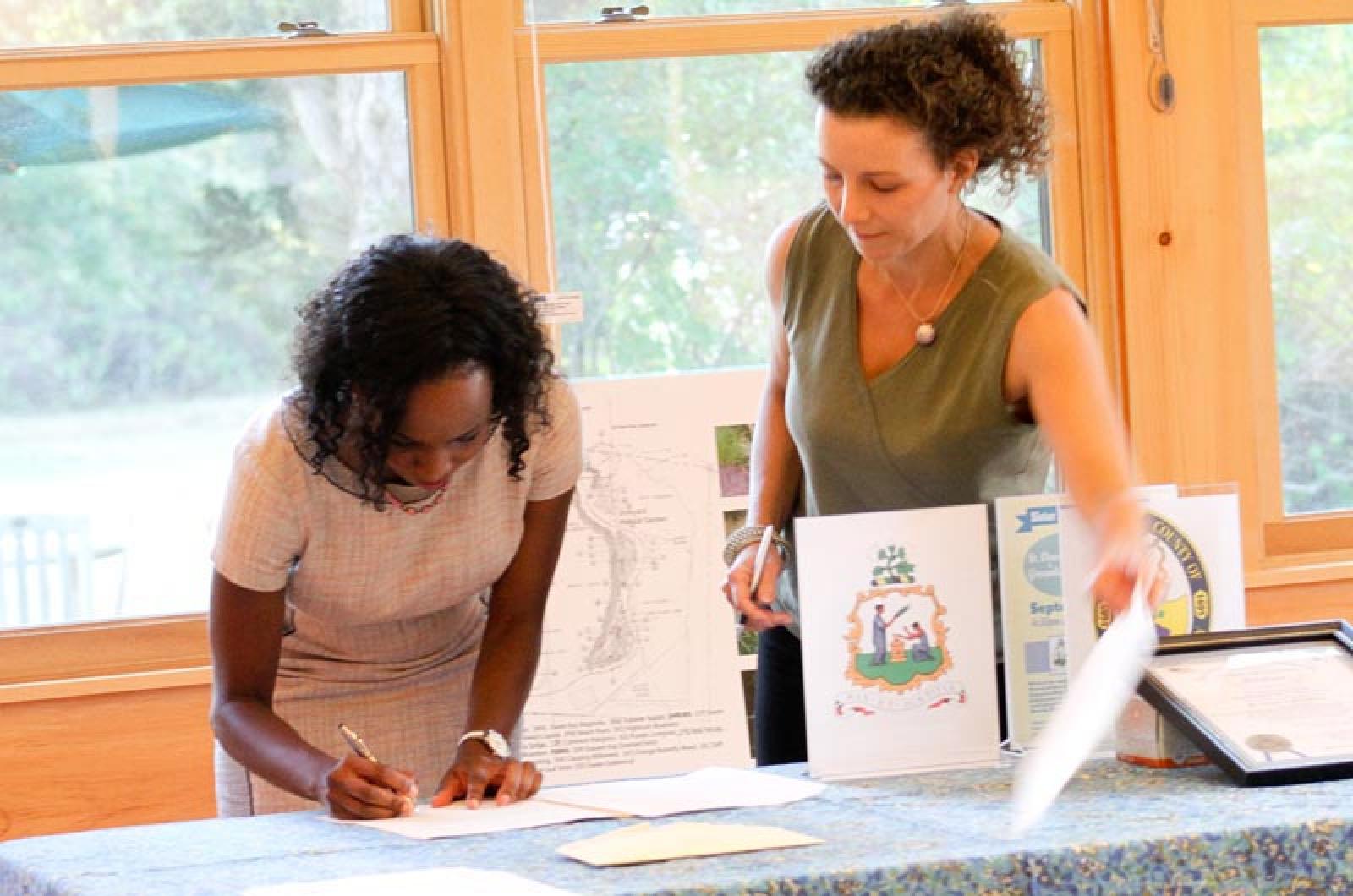The recent eruptions of La Soufriere — an active stratovolcano on the island of St. Vincent in the lesser Antilles — has displaced thousands of the Caribbean island’s residents, leaving them without adequate water or shelter and clouding skies with ash as far away as Cape Verde.
But the impacts of the eruption — which began April 12 and has continued daily since — have also been felt on Martha’s Vineyard, as an ad hoc group of Islanders have rallied to raise money for their sister island thousands of miles to the south in a humanitarian relief effort.
Dukes County manager Martina Thornton said a GoFundMe has been created by the Sister Island Relief Committee — made up of about a half dozen Islanders with close ties to St. Vincent. The GoFundMe also can be found by searching “Sister Islands” on the county website.
Any donations, large or small, will be put to work under the joint management of the St. Vincent diaspora in Massachusetts and the relief committee, a press release from Ms. Thornton said. The first shipment of needed supplies and goods will be leaving Massachusetts on April 24.
A small volcanic island sandwiched among Barbados, Grenada and St. Lucia, St. Vincent formalized a sister island relationship with Dukes County in 2014, after nearly a century of cultural crossover that began with the whaling industry and has continued until the present day. Although partially symbolic, the relationship includes mutual aid responsibilities and represents the cultural connection between the two islands, including their similar size and rich sailing traditions.
A sailing dinghy popular in the region is almost an exact replica of the Yankee peapod sailboat, for example.
Dozens of Islanders still have friends and family either on St. Vincent or on its smaller, more southerly Islands, including Bequia.
Glenn DeBlase, a Vineyard resident who has been in contact with people on the ground in St. Vincent and the Grenadines and knew of residents from a northern town near the volcano, said the conditions were dire. More than 30,000 residents have been evacuated from their homes, and ash is piling high on rooftops, threatening to destroy homes.
“The northern end of St. Vincent is being devastated by the ash that is falling,” Mr. DeBlase said. “Houses there are very lightly built, and getting stoved in and demolished everywhere.”
He added that a river bed in the area, normally dry, was now flowing with boiling water.
“The one thing that has been absolutely devastated is the water source,” Mr. DeBlase said. “Any clean water has to be shipped in. And even more important than water is milk. Milk helps mitigate the effects of the dust in your respiratory system.”
But the ash clouds and dangerous conditions with potential lava flow have closed air and some seaports on the island, making logistics difficult. The GoFundMe is looking to raise $10,000 to support relief efforts, with money coordinated through the diaspora group.
The last time La Soufriere erupted was in 1979, leading to more than 1,000 deaths. Mr. DeBlase said the connection with Martha’s Vineyard goes back much longer.
“There’s a history between the two Islands way back in the whaling days here — one of our first stops would be down in the West Indies,” Mr. DeBlase said. “We ended up sharing a lot more than that.”
“But it is a volcanic island,” he added. “As the prime minister likes to say, the Lord never blessed them with flat land.”
That’s where the Vineyard can help.





Comments (2)
Comments
Comment policy »